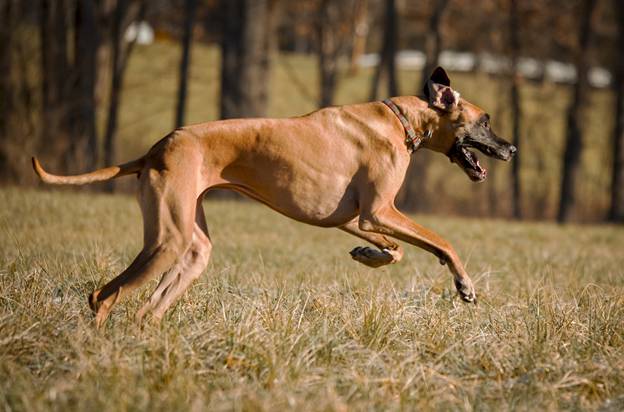8 Dog Breeds With Probable Health Issues
As most dog lovers already know, larger breed dogs don’t live as long as smaller ones, it’s simply a matter of fact. For example, Chihuahuas are among those dogs that have one of the longest life expectancies, as the Norwich Terrier while larger animals like the Rottweiler may only live half as long as a practically pocket-sized pooch.
But size isn’t necessarily everything as the popular idiom argues, and seem breeds of dogs are more susceptible to certain medical concerns compared to others. Here are eight dog breeds that are known to have probable health issues connected to their breed:
1. Great Danes
These gentle giants are favored by lovers of large dogs, but they’re also at a higher risk of developing GDV (gastric dilatation and volvulus) more commonly called “bloat.” But it’s not just the Danes that are in danger, any giant breed of dog with a deep chest is more susceptible to this condition of unknown origin. Fortunately, if caught early it can be treated.
2. German Shepherds
These highly intelligent and active dogs have long held a reputation for having trouble with their joints, especially hip dysplasia. Similar to the Great Dane, this disorder is common in many large breeds and since it’s genetically passed down, over-breeding may be to blame for its prevalence in these particular types of canines.
3. Bulldogs (and Pugs)
Due to the shape of their heads, short length of their snout or simply a face that appears “smashed,” these traits put pugs and Bulldogs at a greater risk of developing breathing problems. From snoring to grunting, you may hear visible signs that these breeds can struggle with their respiration at times.
4. Cocker Spaniels
With those adorable, long, floppy, curly-haired ears, it’s no wonder these dependable dogs are more prone to ear infections. The length and weight of their oversized ears can cause problems since the inside parts of their auditory canals literally rarely see the light of day.
5. Dachshunds
Elongated backs cause Dachshunds to have more spinal injuries and vertebrae conditions compared to dogs with shorter spines. Jumping off furniture, being overweight and too much time spent climbing stairs can also contribute to more problems for them.
6. Pugs
The bulging eyes on these little dogs make them more prone to eye issues and injuries. Fights with other animals, falls and injuries can increase these risks. If you notice something peculiar about their eyes or vision, they should see a veterinarian immediately.
7. Labradors
Although any dog can become overweight, Labradors seem to be more susceptible to obesity compared to some other breeds. These are highly active dogs that need a great deal of exercise and a closely monitored diet to ensure they maintain a healthy weight.
8. Boxers
Boxers seem to contract more types of cancer, especially lymphoma and mast cell tumors. Lymphoma (cancer of the lymph nodes) and mast cell tumors are often diagnosed after their owner feels swelling or bumps on their bodies so check them regularly.
Just because you have a German Shepherd doesn’t mean they’ll automatically inherit a hip condition or getting a Great Dane means they’re destined to develop bloat. But current and potential pet parents should be aware of some of the health concerns that certain breeds may present before purchasing.
Amber Kingsley
Amber Kingsley is a freelance writer whom has donated countless hours supporting her local shelters. With writing, she has spent most of her research on animals with regards to food, health and training.







